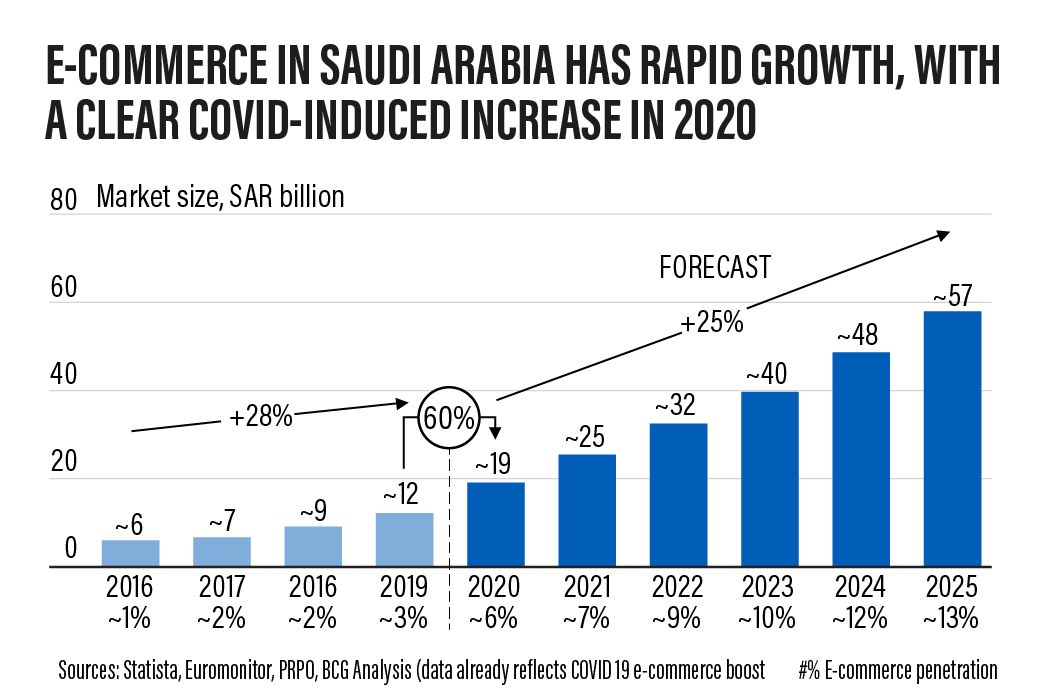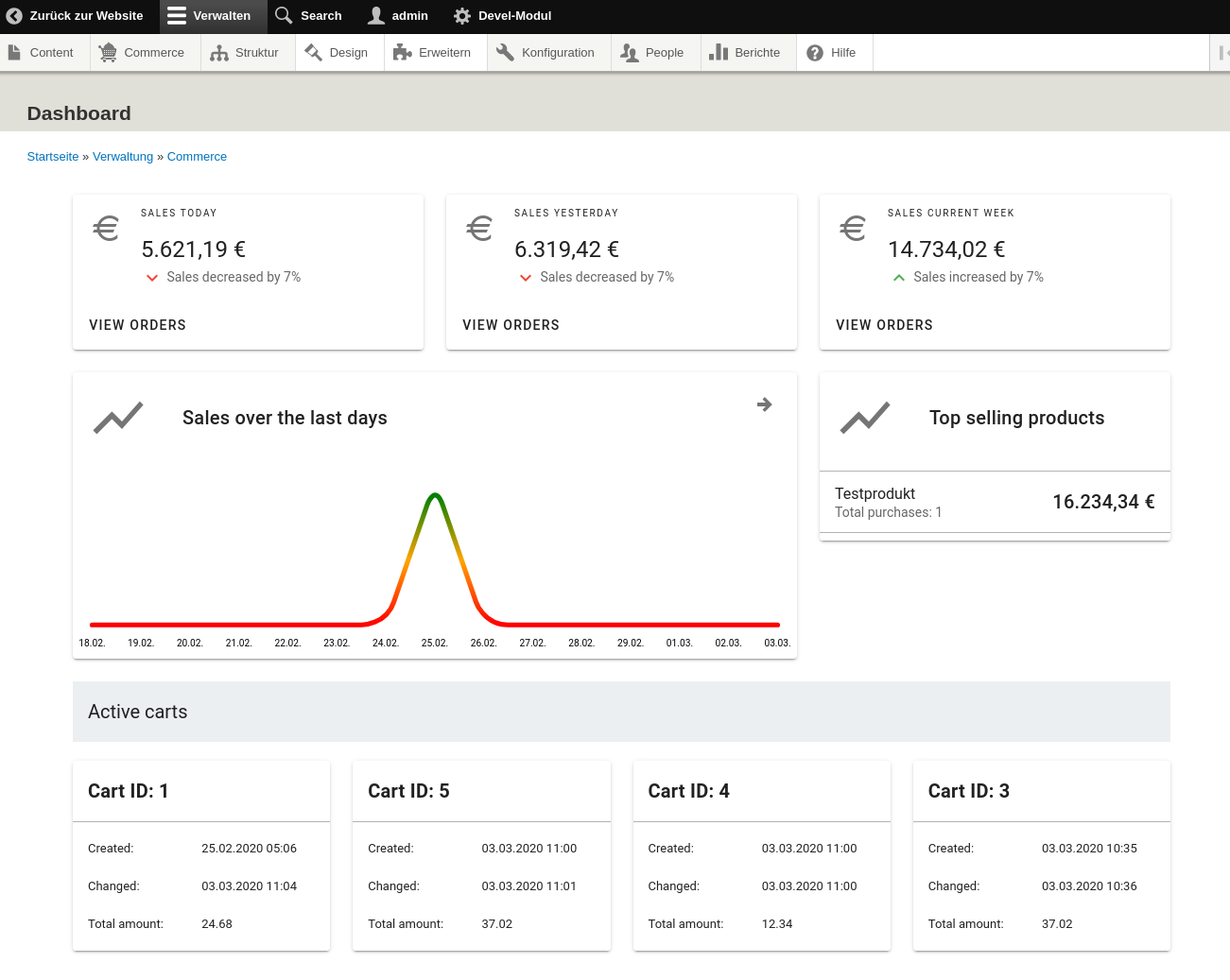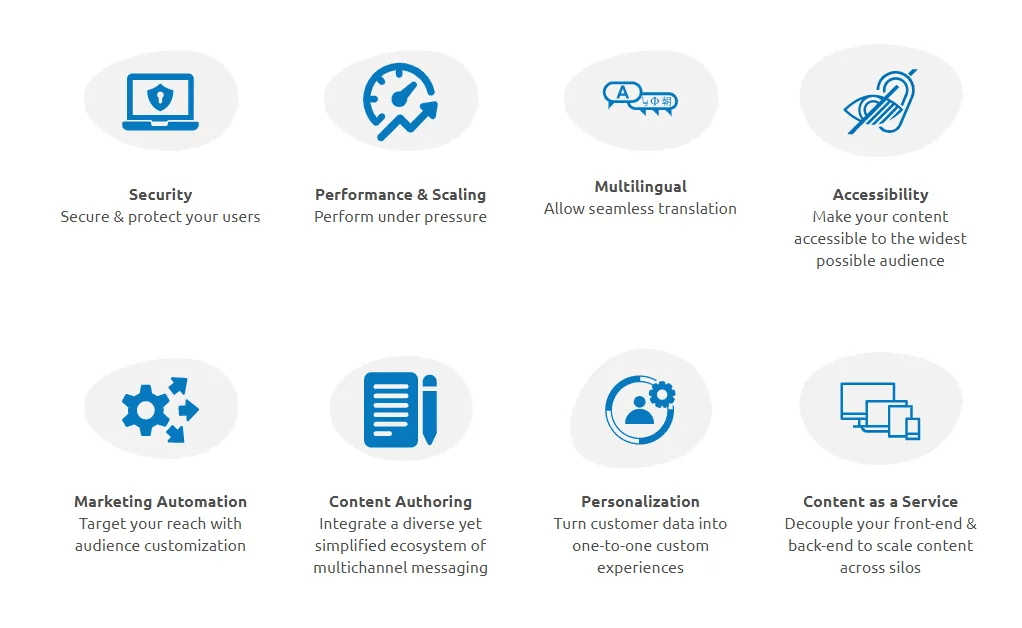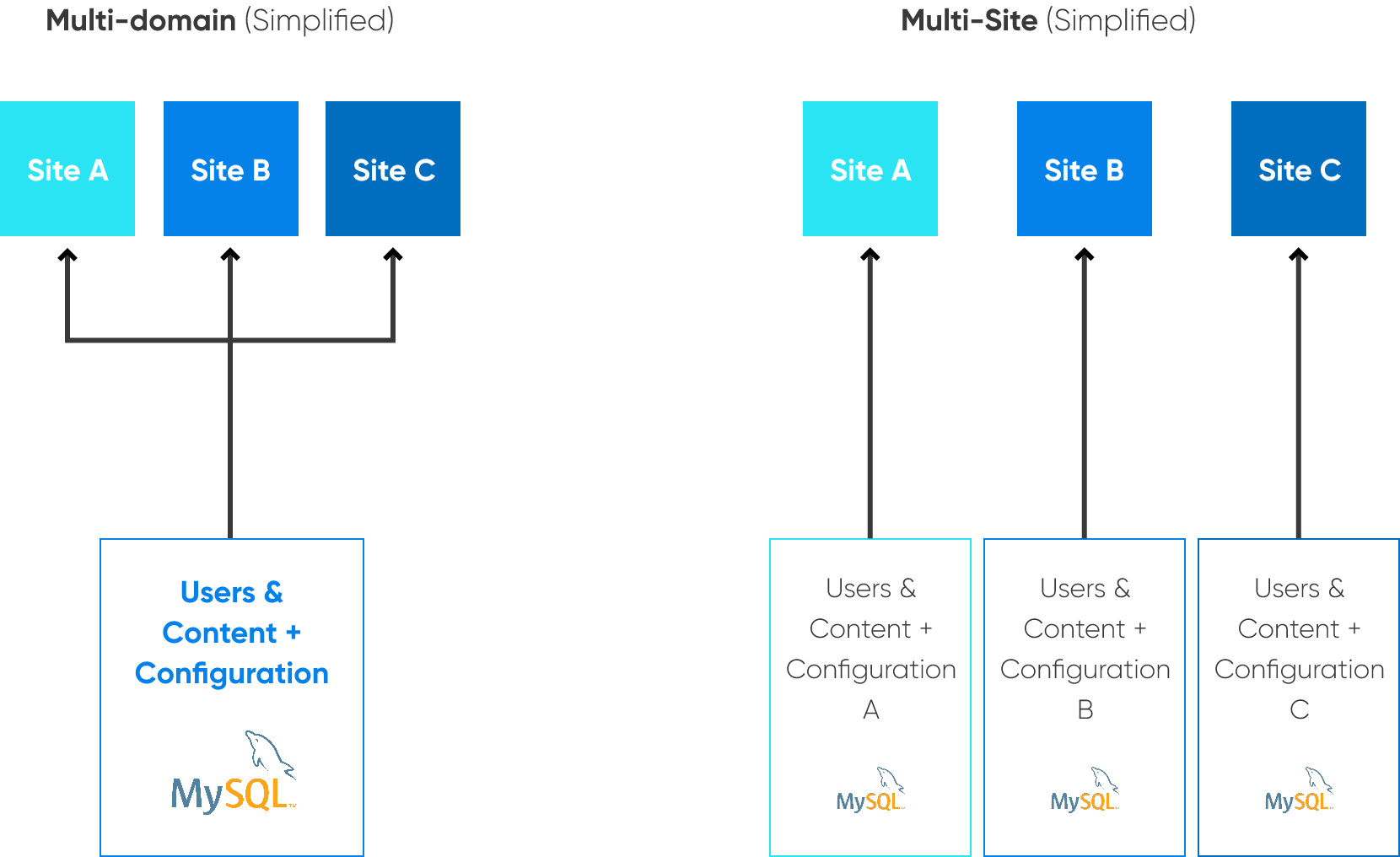Driving E-commerce Success with CMS in Saudi Arabia
According to a report by Statista, the Saudi Arabian e-commerce market is expected to reach $10 billion by 2025. In this booming landscape, staying ahead of the competition is crucial. The key to e-commerce success lies in leveraging a cutting-edge Content Management System (CMS). This comprehensive guide will navigate you through the complex landscape of CMS, focusing on its impact on customer experience, security, and compliance with Saudi Arabian regulations.
📊 Did You Know? 95% of Saudi Arabia's population are internet users, and 91% of them shop online.

The Current State of E-commerce in Saudi Arabia
The e-commerce landscape in Saudi Arabia is booming, driven by a young, tech-savvy population and increased smartphone penetration. According to Datareportal, 95% of Saudi Arabia's population are internet users, and 91% of them shop online.

However, the market is also becoming increasingly competitive, making it crucial for e-commerce platforms to offer personalized and seamless customer experiences. Istizada's complete guide to e-commerce in Saudi Arabia further elaborates on the challenges and benefits, including the importance of understanding local consumer behavior and the regulatory environment.
The Role of CMS in E-commerce Success
The right CMS can streamline operations, manage product catalogs efficiently, and deliver a highly optimized website that attracts and retains customers. It also provides robust features like shopping cart functionality, secure payment gateways, and easy integration with third-party tools.
Streamlining Operations
The right CMS can streamline operations, manage product catalogs efficiently, and deliver a highly optimized website that attracts and retains customers. It also provides robust features like shopping cart functionality, secure payment gateways, and easy integration with third-party tools.
Enhancing Customer Experience
A CMS allows you to easily manage and update your product listings, blog posts, and customer reviews. For example, Drupal offers robust content management features, including customizable workflows for multiple team members in charge of content publishing and easy content revisions.

Key Features of a Cutting-Edge CMS
- Easy Content Updates: Keep your website up-to-date with new products, prices, or blog posts.
- Effective Product Catalog Management: Streamline the customer's search experience.
- Customization and Personalization: Analyze customer behavior for a personalized shopping experience. According to Accenture, 91% of consumers are more likely to shop with brands that provide personalized offers.
- User-Friendly Interface: Easy navigation and management.
- Multi-Channel Support: Consistent brand experience across all touchpoints.
- Robust Security: Enterprise-level security features.
- Streamlined Operations: Reduce manual efforts and minimize errors.
- SEO Performance: Built-in SEO capabilities.
- Advanced Search Capabilities: Enhance user experience and increase conversions.
- Seamless Integrations: Easy integration with payment gateways, inventory management systems, or marketing automation tools.

Building Multiple Sites with a Centralized CMS
One of Drupal's standout features is its ability to manage multiple e-commerce sites from a centralized CMS. This is particularly useful for businesses with diverse product lines or regional variations, allowing for centralized control while accommodating unique needs.
As your e-commerce business grows, you may find the need to manage multiple websites or even international versions of your store. Drupal excels in this area, offering a centralized CMS that can manage multiple sites, each with its own customized features and content, all from a single dashboard.

Challenges and solutions for using a cutting-edge CMS in e-commerce in Saudi Arabia
Optimizing your e-commerce website using a cutting-edge CMS in Saudi Arabia involves implementing best practices to maximize its performance and effectiveness. Here are some best practices to consider:
-
Optimize Website Speed: Ensure that your e-commerce website loads quickly and efficiently. Optimize image sizes, eliminate unnecessary plugins, and leverage caching techniques to improve website speed.
-
Implement Responsive Design: With the increasing use of mobile devices, it's crucial to have a responsive design that adapts to various screen sizes. This provides a seamless experience for users across different devices.
-
Utilize SEO Best Practices: Implement on-page SEO techniques, such as optimizing meta tags, using relevant keywords, creating unique and informative product descriptions, and generating search engine-friendly URLs.
-
Leverage Analytics: Use web analytics tools to track and monitor key metrics like website traffic, conversion rates, and customer behavior. Analyze this data to identify areas for improvement and optimize your e-commerce website accordingly.
-
Provide Excellent Customer Support: Offer multiple channels for customer support, such as live chat, email, and phone. Ensure that customer queries and issues are promptly addressed to provide a positive shopping experience.
Best Practices for Optimizing Your E-commerce Website Using a Cutting-Edge CMS in Saudi Arabia
After understanding the importance of a cutting-edge CMS and how Drupal aligns with Saudi Arabian regulations, it's crucial to know how to implement this technology effectively. Here are some best practices to guide you through the CMS implementation process for your e-commerce business in Saudi Arabia:
-
Define Your Requirements: Before diving into the world of CMS, it's essential to have a clear understanding of your business goals and requirements. What features do you need to enhance customer experience? What functionalities are crucial for your daily operations? Drupal offers a wide range of modules and features that can be tailored to meet these needs.
-
Research and Shortlist CMS Options: There are numerous CMS platforms available, but not all will meet your specific needs or comply with Saudi Arabian regulations. Conduct thorough research to identify CMS options that align with your requirements. Drupal stands out for its flexibility, security, and compliance features, making it a strong contender for businesses in Saudi Arabia.
-
Evaluate and Compare: Once you've shortlisted potential CMS platforms, evaluate them based on ease of use, customization options, integration capabilities, and customer reviews. Drupal, for example, offers extensive customization and has a strong community of developers, which can be a significant advantage.
-
Set Up and Configure: After selecting your CMS, the next step is to set it up. Follow the setup and configuration guidelines provided by the CMS provider. Drupal offers a range of themes and modules that allow you to align the design and layout with your brand identity effortlessly.
-
Migrate and Populate Content: If you're transitioning from another platform, this step is crucial. Migrate all your existing content, product information, and images to the new CMS. Drupal offers various modules that can make this process smoother and more efficient.
-
Test and Optimize: Before going live, thoroughly test all the features and functionalities to ensure they are working as expected. Pay attention to website speed, user experience, and mobile responsiveness. Drupal's built-in performance optimization tools can be particularly helpful in this phase.
-
Launch and Monitor: Once you're satisfied with your website, it's time to launch. But the work doesn't stop here. Continuously monitor key performance indicators like website traffic, conversion rates, and customer feedback to identify areas for improvement. Drupal's robust analytics modules can aid in this ongoing monitoring.
Compliance with Saudi Arabian Regulations
Operating an e-commerce business in Saudi Arabia involves adhering to a set of local regulations and standards to ensure a secure and trustworthy environment for both businesses and consumers. One of the standout features of Drupal as a CMS is its robust compliance capabilities, particularly in the context of Saudi Arabian regulations.
Data Protection and Privacy
Saudi Arabia has stringent data protection laws, and businesses are required to protect consumer data diligently. Drupal offers robust security features, including advanced encryption methods, to ensure that customer data is stored and transferred securely. This aligns with Article 6 of the Saudi E-Commerce Law, which mandates the protection of consumer data.
Payment Gateway Compliance
The Saudi Arabian Monetary Authority (SAMA) has set guidelines for online transactions, including the types of payment gateways that can be used. Drupal's flexibility allows for seamless integration with SAMA-approved payment gateways like PayTabs and HyperPay, ensuring that your e-commerce business is in full compliance with local financial regulations.
Consumer Rights
The Saudi E-Commerce Law outlines various consumer rights, such as the right to full disclosure of product information and the right to a refund within seven days of purchase. Drupal's customizable product pages and easy-to-manage return management features make it easier for e-commerce platforms to adhere to these regulations.
Accessibility Standards
Saudi Arabia is making strides in ensuring that digital platforms are accessible to people with disabilities. Drupal is built with accessibility in mind, offering features like ARIA attributes and semantic HTML5, which help in making your e-commerce site more accessible and compliant with local standards.
Need help enhancing your e-commerce website's accessibility and user experience? Contact us today.
VAT Compliance
As of January 1, 2018, a Value Added Tax (VAT) of 15% is applicable to all goods and services in Saudi Arabia. Drupal Commerce, Drupal's e-commerce solution, has built-in features that allow for easy calculation and application of VAT, ensuring that your business is in compliance with tax regulations.
Cybersecurity Measures
Cybersecurity is a growing concern, and the National Cybersecurity Authority (NCA) in Saudi Arabia has outlined guidelines for securing online platforms. Drupal's robust security features, including regular security updates and patches, align well with these guidelines, offering an additional layer of protection against cyber threats.
By choosing Drupal as your CMS, you're not just opting for a platform that offers robust features and customization; you're also choosing a platform that understands and adapts to the regulatory landscape of Saudi Arabia, making compliance streamlined and straightforward.
The Future of E-commerce in Saudi Arabia
With advancements in technology and changing consumer behavior, the future of e-commerce in Saudi Arabia looks promising. The integration of AI and machine learning into CMS platforms is expected to offer even more advanced data analytics and personalization features. According to Forbes, the use of AI in e-commerce is expected to increase sales by 59% in the next five years.
Related: Learn more about Drupal 10.1.6, the latest release in Drupal 10.
Conclusion: Embracing the power of cutting-edge CMS for e-commerce success in Saudi Arabia
From content management and personalization to multi-channel support and security, a CMS like Drupal offers all the features you need for success. With its compliance with Saudi Arabian regulations and its scalability, Drupal stands out as an ideal choice for e-commerce platforms looking to make a mark in this booming market.
📞 Need help building a winning e-commerce business? Contact our team today for a free consultation.
